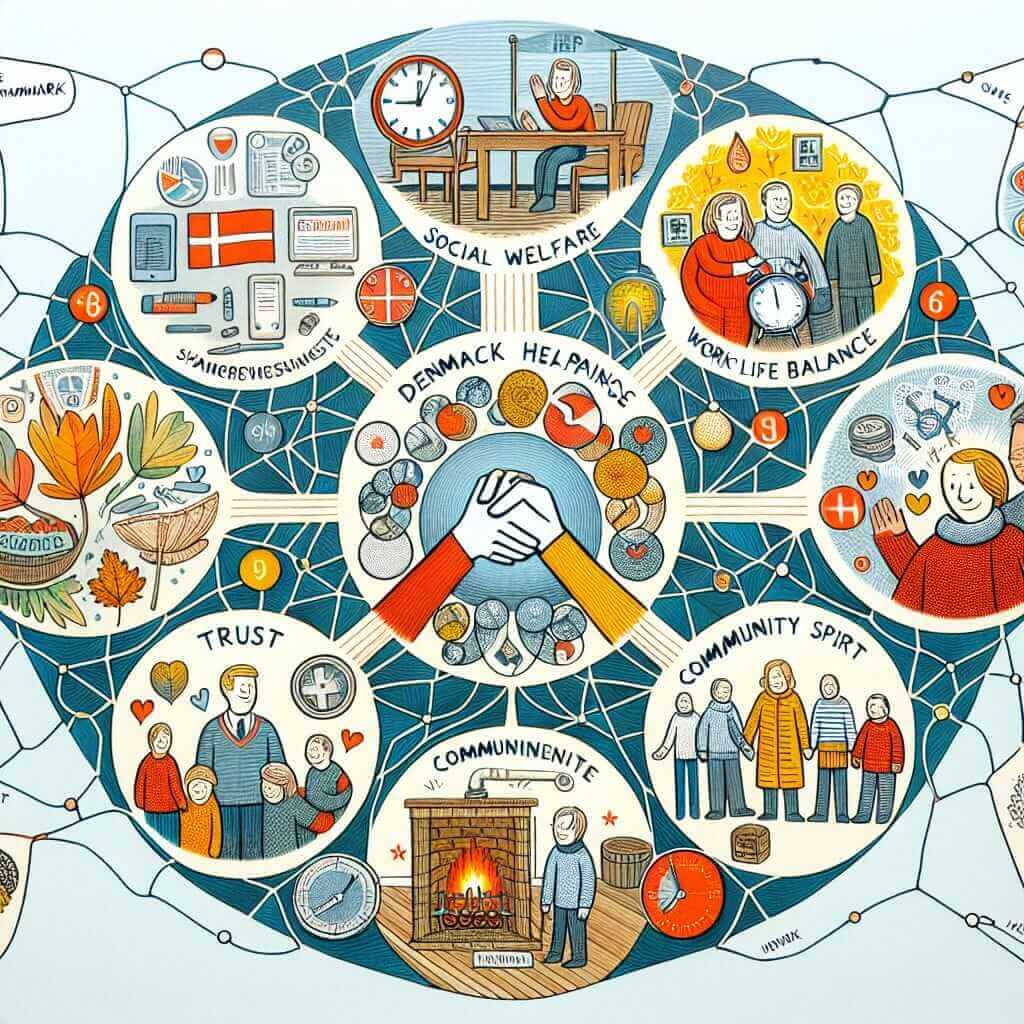As experienced IELTS instructors with over 20 years of experience, we often encounter reading passages that pique students’ curiosity and spark engaging classroom discussions. “Why Denmark is the happiest country” is one such topic. This article delves into this intriguing subject, exploring why it’s frequently featured in IELTS Reading and how you can master such passages.
Unpacking the Topic: Happiness and Societal Well-being
IELTS Reading tests your ability to comprehend, analyze, and interpret information from various sources. The topic of Denmark’s consistent ranking as one of the happiest countries globally is relevant to IELTS for several reasons:
- Social Science Theme: IELTS often features passages related to sociology, psychology, and cultural studies. This topic aligns perfectly by exploring factors contributing to societal well-being.
- Data Interpretation: Articles about happiness rankings often include statistics, graphs, or research findings. IELTS Reading assesses your ability to locate and understand data within a passage.
- Vocabulary Building: Such passages expose you to specialized vocabulary related to happiness, quality of life, social welfare, and cultural values.

Navigating “Denmark’s Happiness” Passages
Here’s a breakdown of how to effectively approach an IELTS Reading passage on this theme:
1. Skimming and Scanning:
- Skim the passage quickly to grasp the main idea. What are the key factors highlighted that contribute to Denmark’s happiness ranking?
- Scan for specific keywords: Look for terms like “Gross National Happiness,” “social welfare,” “work-life balance,” “trust,” “community,” “equality,” and “Hygge” (a Danish concept often associated with coziness and contentment).
2. Identifying Different Perspectives:
The passage might present contrasting viewpoints. Pay attention to:
- Researchers: What methodologies do they use to measure happiness?
- Critics: Do they challenge the validity of happiness rankings? What alternative factors do they propose?
- Danish Citizens: Are there personal anecdotes or interviews that provide insights?
3. Analyzing Data:
- Pay close attention to any presented statistics, charts, or graphs.
- What trends or correlations are highlighted?
- Can you draw your own conclusions based on the data?
Example: Potential IELTS Reading Questions
Let’s assume you encounter a passage titled “The Danish Recipe for Happiness.” Here are some question types you might encounter:
1. True/False/Not Given:
- Denmark has consistently ranked as the happiest country globally for the past decade. (T/F/NG)
- The Danish concept of “Hygge” is solely responsible for the country’s high happiness ranking. (T/F/NG)
2. Matching Headings:
- Match headings like “Economic Factors,” “Social Support Systems,” or “Cultural Values” to corresponding paragraphs within the passage.
3. Multiple Choice:
- According to the passage, what is the primary reason for Denmark’s high life satisfaction?
- a) High GDP per capita
- b) Strong social safety nets
- c) A culture of work-life balance
- d) All of the above
4. Sentence Completion:
- The Danish government’s investment in __ has been cited as a key factor in promoting citizen well-being.
Tips for Success:
- Expand your vocabulary: Regularly read articles and research papers on topics related to happiness, well-being, and cultural studies.
- Practice data interpretation: Familiarize yourself with different types of charts, graphs, and statistical representations.
- Develop critical thinking: Don’t just accept information at face value. Consider potential biases, alternative explanations, and the limitations of happiness rankings.
Conclusion
Remember, success in IELTS Reading comes from consistent practice and developing strong analytical skills. By approaching passages on “Why Denmark is the happiest country” with a discerning eye, you can enhance your comprehension, vocabulary, and ultimately boost your overall IELTS score.